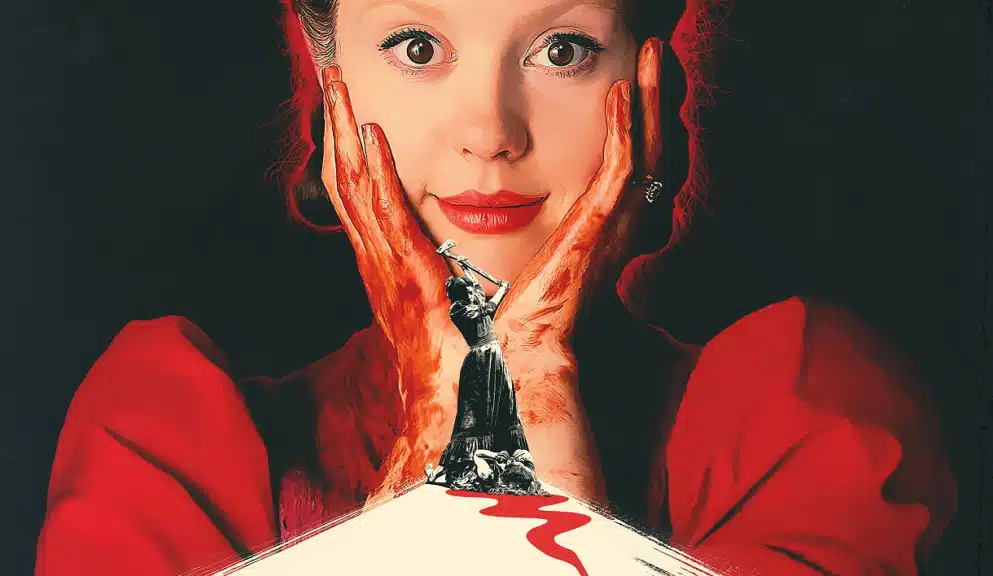Everyone, meet Pearl! Aspiring starlet, sweet farm girl, and violent killer. Could she be America’s next sweetheart?
Following the success of Ti West’s slasher film X, A24 released a prequel entitled Pearl. With Mia Goth reprising her role, the film explores Pearl’s pursuit of fame and her troubling family life. Ultimately, her desire to escape her family farm and achieve stardom is fruitless. One extramarital affair and four murders later, the film concludes in the same setting it began.
Why do we empathize with Pearl?
Despite Pearl’s unredeemable actions, the audience sees themselves in some parts of her. Pearl’s monologue at the film’s end is deeply emotive and poignant, conveying how she feels trapped on the farm in an unfulfilling marriage. She feels unworthy of her husband and constantly compares herself to her younger, blonder sister-in-law. Her desire to be prettier, younger, and blonder strikes a chord with many women, but above all, her need to be loved establishes her relatability. This is amplified by the fact that she never gets what she so desperately craves. She dies old and unknown on the farm in X after a young starlet, Maxine (also played by Goth), kills her.
Pearl’s actions are, of course, far from relatable. Murdering her entire family while holding a strained smile and torturing animals are clear indications of a troubled psyche. Although the audience recognizes why she commits these murders, Pearl’s glee when carrying them out means they cannot be justified. Even Pearl recognizes that her family did not deserve to die, lamenting her cruelty and the lengths she went to in pursuit of her goals.
Feminine Pain and Rage
The violent expression of Pearl’s unhappiness is almost cathartic to witness. To see a woman be unashamedly violent in this way, unrestrained by expectations to be prim and proper, is refreshing. Having these qualities whilst also being easy to empathize with is even more refreshing. Pearl unashamedly screams at her paramour for leaving her, expressing herself with such openness that the audience wishes they could do the same. With the rise of women ironically calling themselves ‘femcels’ and ‘female manipulators’ online, embracing the unpleasant side of one’s own personality is now appealing. Why pretend to be perfect when you can admit to being a little terrible?
However, this interest in morally questionable women in media is a relatively new phenomenon. Male characters who commit atrocities have been afforded a level of likeability and relatability for some time already. Think of the mass idolization of the Joker: the audience sees him as a victim of loneliness and a broken system rather than a criminal. However, one prominent evil woman, Amy Dunne from Gone Girl, retains significant fascination. Amy Dunne is far more calculating and composed, but both women demonstrate a cultural fascination with complex unhinged women. Both characters are fascinating in their consideration of how their environments shaped them, thus fostering understanding and even support from the audience.
Although there is still work to be done regarding women’s representation in film, this is an interesting step forward. Pearl is evil and sympathetic without either of those characteristics subtracting from the other, a masterfully crafted and acted character.














